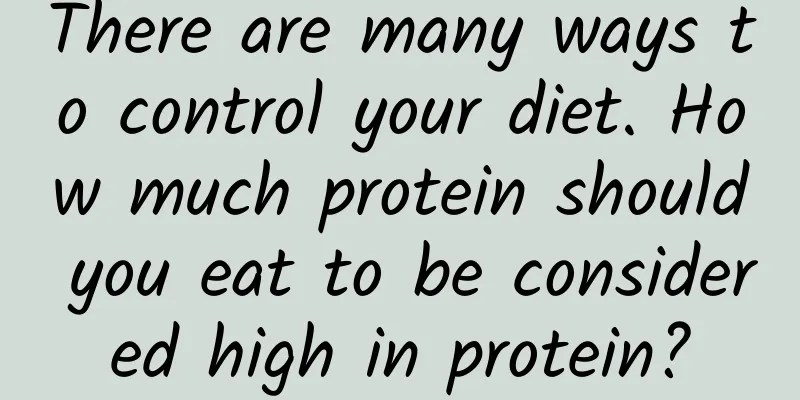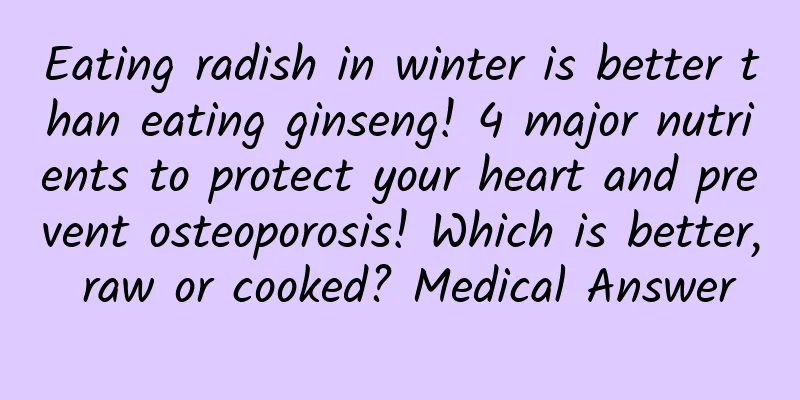There are many ways to control your diet. How much protein should you eat to be considered high in protein?

|
There are many ways to control diet. Taking low sugar and high protein as an example, what level of protein should be consumed to be considered high protein? There was also the ketogenic diet that was popular a while ago. Many people misunderstood that it was just a strict restriction of carbohydrates. Little did they know that it also required a higher proportion of fat, rather than simply eating as much meat as you want and supplementing protein! The secret lies in the distribution ratio of the three major nutrients, and this ratio represents the proportion of calories. It needs to be converted into grams to know how much to actually eat, and then distributed again to the six major food categories. If you don’t pay attention to the portion, it is easy to eat more or less. Although I’m not a mathematician, this sounds very important, right? So, how do we convert it? Hane will show you how to do the conversion in the following three steps. First, we must know how many calories each gram of nutrients can produce. 1g of carbohydrates (sugar) can produce 4 calories (fiber also belongs to this category, but because the human body cannot digest and absorb it, the calories can be almost ignored) 1g of protein can produce 4 calories 1g of fat can produce 9 calories (Photo source: Foodie-Hane Nutritionist) Note that alcohol is not considered a nutrient, but it does produce calories! 1g of alcohol can produce 7 calories, which will affect the overall ratio of the three major nutrients. Next, calculate how many calories you need for the whole day? Next, let's divide the three major nutrients into proportions. For example, if a person eats 2,000 calories a day and wants to follow a balanced diet, the daily dietary guidelines recommend: 53% carbohydrates, 20% protein, and 27% fat. The conversion into grams is as follows: Carbohydrates 2000 × 53% / 4 = 265g Protein 2000×20%/4=100g Fat 2000×27%/9=60g (Photo source: Foodie-Hane Nutritionist) Finally, it is important to understand that it is not only beans, fish, eggs and meat that contain protein. Whole grains and vegetables also contain small amounts. In addition to containing a large amount of protein, dairy products also contain lactose. For those who strictly control sugar levels, this may affect the distribution ratio! In addition, fat is the most difficult to grasp. In addition to paying attention to the cooking method, you also have to see whether the meat you eat is rich in fat. Do you think it’s complicated? It’s okay, this is the specialty of nutritionists. If you really encounter difficulties, it is recommended to seek professional help. (Photo source: Foodie-Hane Nutritionist) |
Recommend
What is the reason for missing menstruation after miscarriage?
What is the reason for missing menstruation after...
Are there any complications of ovarian cysts?
Are there any complications of ovarian cysts? 1. ...
How to care for lichen sclerosus vulvar leukoplakia?
Lichen sclerosus vulvar leukoplakia is also a typ...
Cervical precancerous lesions
Cervical precancerous lesions refer to lesions th...
Things to note when treating pelvic inflammatory disease
I believe everyone is familiar with pelvic inflam...
Drinking honey water during these 4 periods will double the effect of detoxification and weight loss
[Key Points]: The most well-known function of hon...
Elderly patients with vaginitis should be treated actively
Aunt Xu, 58 years old, is healthy, optimistic and...
Does cervical hypertrophy affect pregnancy?
Cervical hypertrophy may affect pregnancy, but it...
What are the symptoms of uterine fibroids after pregnancy? Treatment of uterine fibroids
The symptoms of uterine fibroids after pregnancy ...
Ectopic pregnancy can also be treated conservatively
Li Xiang is 30 years old this year. She usually h...
Is it difficult for Leos to lose weight since they love to eat big meals? If you want to lose weight successfully, start with these 3 steps
The most common stereotype about Leo friends is t...
Men, look here! 10 exercise rules to help you lose weight
Rule 1: When you feel hungry, you are already thi...
How is the effect of interventional embolization treatment for adenomyosis?
Interventional embolization for adenomyosis is an...
What are the common treatments for chronic adnexitis?
Chronic adnexitis is a common disease among women...
Stay at home and lose weight in the haze! 5 ways to slim down your belly and legs with a towel
[Key points]: After watching Chai Jing's &quo...









